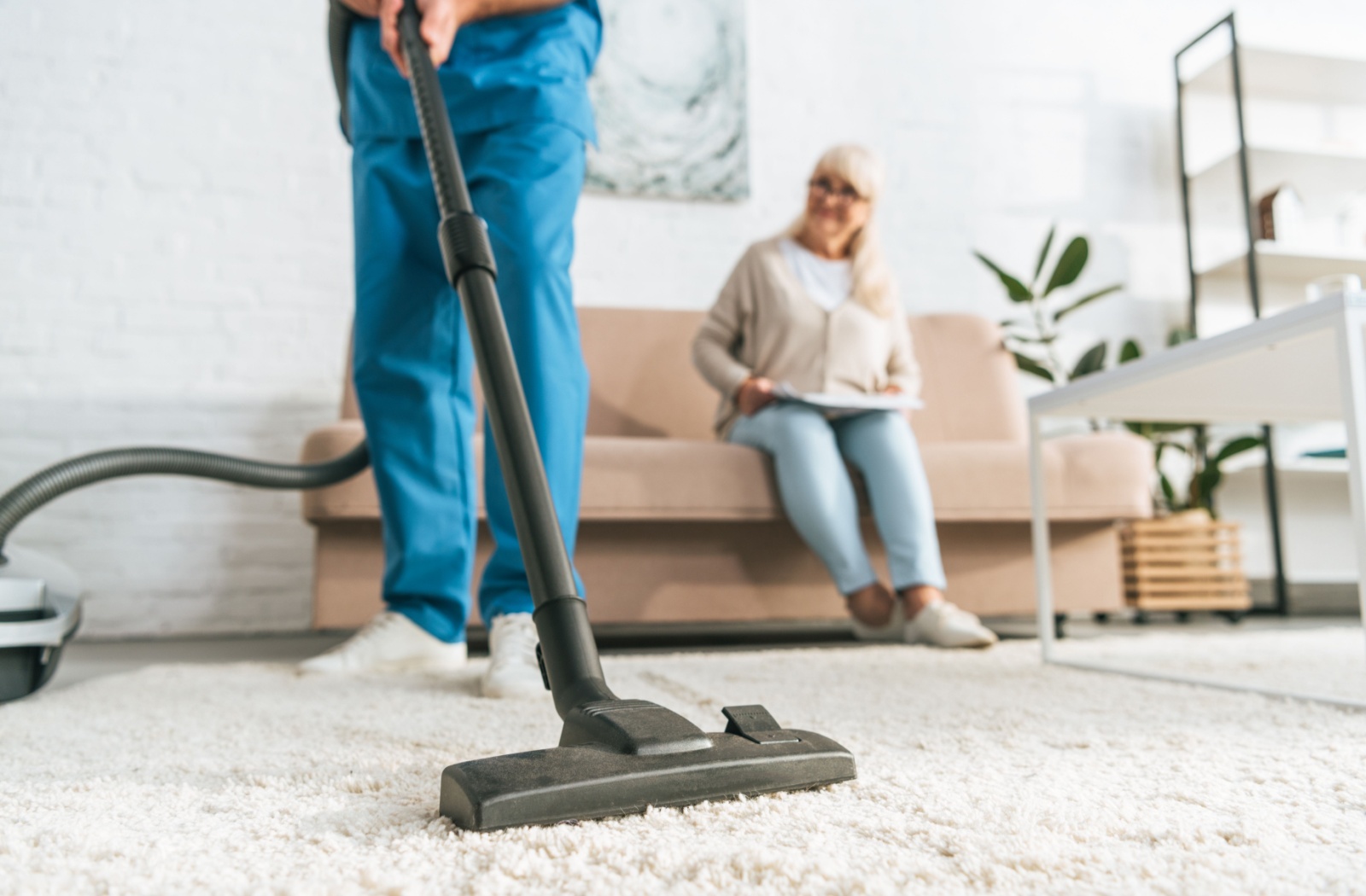Balance is a crucial part of everyday life—especially for older adults. But age often causes challenging changes that can directly impact a person’s balance. Understanding what factors could be affecting your loved one’s balance can help you to take effective steps toward finding a solution.
There are 4 main factors that can affect a senior’s ability to balance:
- Muscle strength
- Vision
- Neurological conditions
- Environmental factors
Why Balance Is Important for Seniors
Even if you aren’t consciously aware of it, your balance plays an important role in your everyday activities. Walking, reaching for objects, and even standing up requires sufficient balance skills. And without this ability, daily tasks can become more difficult to perform without assistance.
For seniors, balance is a crucial part of staying safe, mobile, and independent. However, age often makes it more difficult to maintain balance. According to the CDC, at least 1 in 4 seniors experiences dangerous falls every year.
To help maintain independence, it’s important to recognize the signs that your loved one is struggling with balance. If you’ve noticed any of the following warning signs, it’s time to take action:
- Frequent falls or stumbling
- Difficulty standing up from a seated position
- Trouble walking or using stairs
- Dizziness or lightheadedness when getting up
But what causes these balance changes in seniors?
Muscle Strength & Balance
Muscle strength plays a significant role in maintaining balance. It helps keep you upright and mobile. Balance constantly requires you to use the muscles in your legs, core, and back.
However, over the years, muscle mass, function, and strength begin to decrease. This involuntary loss of muscle mass is called “sarcopenia.” While this affects almost everybody, there is good news: regular exercise and strength training can help prevent and manage sarcopenia to prevent falls in the future.
Physical activity is crucial for seniors as exercise helps build the muscles needed to stay upright. It’s recommended that seniors perform balance exercises at least 2 times a week to help strengthen the muscles necessary for mobility.
How Vision Affects Balance
Vision is a key component of the body’s balance system. It helps the brain understand the surrounding environment and coordinate movement accordingly. Poor vision can cause poor coordination, affecting stability, especially when standing.
Over the years, the human eye undergoes plenty of changes. Your loved one may be dealing with an eye condition such as:
These conditions can all blur or distort vision, making it difficult to safely navigate their environment. If you’re worried about your loved one’s vision, visit a nearby optometrist for an eye exam to determine the next steps to take.
Can Neurological Conditions Affect Balance?
Neurological conditions can significantly impact a senior’s balance and mobility.
The nervous system plays a critical role in coordination and movement by delivering signals between the brain, muscles, and sensory organs. When these signals are disrupted, it can quickly result in balance problems.
Some common neurological conditions include:
Neurological conditions, which disrupt the central and peripheral nervous system, can quickly lead to coordination and stability problems. If you suspect your loved one is experiencing a serious neurological condition, it’s crucial to see a healthcare professional as soon as you can to discuss treatment.
The Environmental Effect on Balance
If you’re worried about your loved one falling and sustaining injuries, checking their house for any obvious hazards can immediately create a safer environment.
 Evaluating and modifying the home is essential for maintaining safety and well-being. Make sure to check for:
Evaluating and modifying the home is essential for maintaining safety and well-being. Make sure to check for:
- Clutter or loose objects on the floor that could cause tripping
- Loose rugs or mats that could slip
- Poor lighting, especially in hallways and staircases
- Uneven flooring or steps without handrails
- Unstable furniture that could tip over
- Lack of grab bars in the bathroom, particularly by the toilet and in the shower
- Cords and wires strewn across walking areas
- Slippery surfaces, especially in kitchens and bathrooms
Addressing these environmental hazards can significantly improve safety in the house and reduce the risk of falls.
A Healthy & Stable Lifestyle
The ability to maintain balance is crucial for independence and overall well-being. Taking the time to learn about the factors that affect balance can help identify and address the root cause of balance issues, help prevent falls and injuries in the long run.
At Sommerset Neighborhood, we prioritize the safety and well-being of our residents. Book a tour with us today to see how we can give your loved one an environment tailored to keep them safe, happy, and well!



